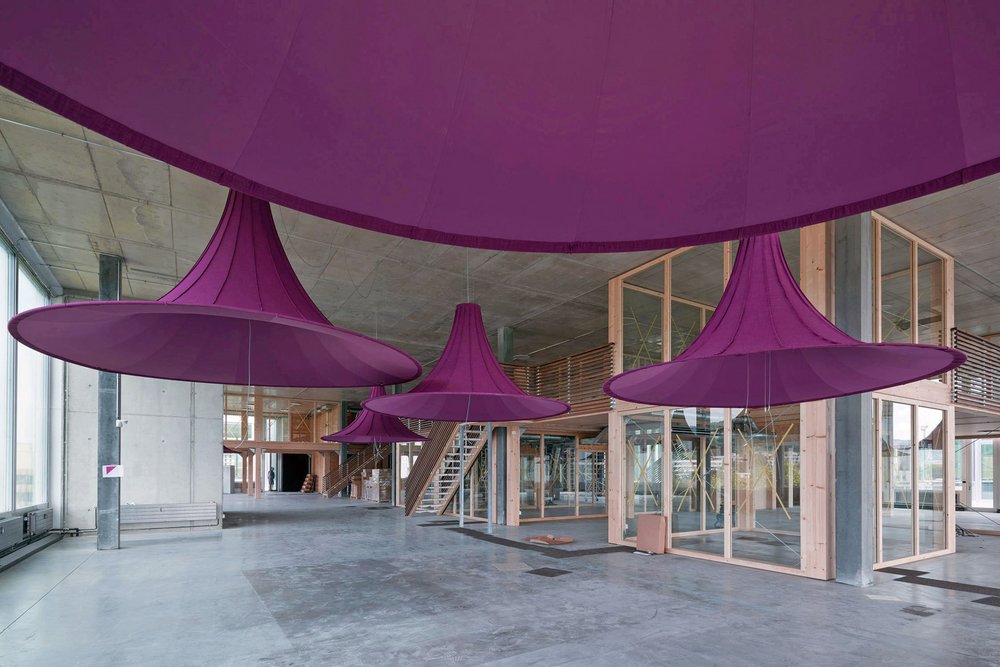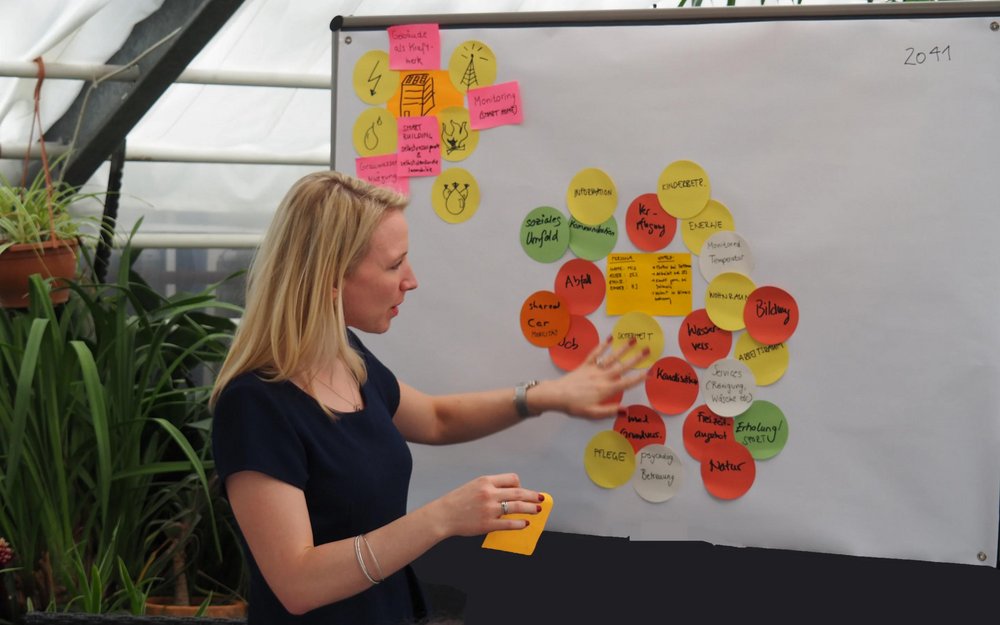Story Detail
Increased information reduces vacancy rates
For Swiss Prime Site, simply «being ready» for change or «participating» in it is not a viable option. As the leading player in Switzerland’s real estate market, the company’s objective is to initiate and implement innovations comparable in scale to Uber or AirBnB. Anticipating development rather than merely participating in it is the name of the game. That this is not simply the sort of glib statement that now adorns practically every corporate website was demonstrated by a recent workshop held in Zurich by Swiss Prime Site Ventures, Wincasa and the German startup Tower360.
Julian Vogel and Chakra Banerjee look exactly like typical young IT entrepreneurs, with Banerjee in smart casual attire and Vogel sporting an open-necked knitwear pullover. Their CVs fit the bill, too – university, followed by the creation of their first companies and now the breakthrough they have achieved with their Tower 360project. They first met while attending the MBA programme at the Wharton Business School in Pennsylvania. Since then, they have been working together on an idea which is set to bring fundamental change to the way properties are managed and let.
Marcel Denner, Head of Corporate of Ventures & Development at Swiss Prime Site, extends a warm welcome to his visitors. Everyone is on first-name terms and, although the objectives are ambitious, the atmosphere is relaxed. Denner first got to know Vogel and Bannerjee in early 2017 through his contacts at the University of St Gallen. When they showed him their new cloud-based app, which radically simplifies the processes used for renting and letting real estate, he immediately saw its potential for the Swiss Prime Site Group. Until then, Tower360 had been focusing its efforts on the German market, where it had successfully completed a number of small-scale cooperation projects. Now, with its first Swiss project, Tower360 is set to commence operations on a much larger scale. As Marcel Denner explains, «These new capabilities will not only complement our core business and enable us to develop it further. By working with such a successful startup as Tower360 we are also gathering experience which will be valuable to us in our own venture activities.»
«Nowadays, I can go online and buy a Tesla for 100 000 euros or a condimium for 1 million without engaging in significant interactions with the counterparties concerned. But, even in 2017, renting a small apartment for 1 000 euros is still a cumbersome process. Do things have to be that way?», asks Julian Vogel. His question pinpoints the Achilles heel of the entire industry, as the two experts from Wincasa attending the workshop are only too aware. Forms filled in by hand, Excel spreadsheets and the trusty old fax machine are still the main tools used by property administrators to this day. While the administrator’s role as the intermediary between landlord and tenant appears firmly established, the overall process is both complex and laborious. But didn’t the same complexity once also apply to holiday rentals? And taxi services? If a revolution along the lines of AirBnB or Uber is in the offing for property management, Wincasa intends to be a first mover.
«Data silos and a lack of links between the data that is available are the key attributes of the current situation», as Sandro Principe confirms. As CTO of Wincasa, Principe is responsible for the digital transformation of property management operations at Switzerland’s leading company in this field. «Although, compared to our industry peers, we are very good at data management, we are still miles away from achieving what is technically possible.» The workshop participants exchange ideas enthusiastically. Long-term goals and medium-term initiatives are considered, multi-year strategies are discussed, as are measures for imminent implementation. Clearly, none of those present wants to let the grass grow under their feet. Under the collaboration agreement, there will be an initial period of exclusivity for Swiss Prime Site and Wincasa and this needs to be put to the best possible use!
The objective for phase 1 of the plan is to use Tower360 to optimise the management of vacant commercial rental space. Lower vacancy rates thanks to increased information. That is a promise which has met with keen interest from landlords and property managers alike, and on which the startup has already successfully delivered in its test markets. Industrial and retail properties are next on the list, followed by residential real estate. The plan is for this new ecosystem to grow step by step, first linking into existing software, before integrating and, ultimately, replacing it.
The detailed discussions concluded, the parties shake hands and sign the new agreement. While everyone is enthusiastic about what can be achieved, all are conscious of the scale of the tasks ahead of them. Before taking their leave and flying back to Hamburg, Chakra Banerjee has just one urgent question he needs to ask, «Where can we find a really good burger here?»
Tower 360
The range of possibilities opened up by Big Data is immense. For an individual employee in a large company, these unfortunately include the possibility of getting lost. The property management industry generates a large quantity of data from a wide variety of different sources. The German startup Tower360 has developed its concept for making that data available simply and in a clearly structured manner to a point where it will soon be ready for the market. The company’s two founders, Julian Vogel and Chakra Banerjee, have accumulated valuable experience from deploying their software in a number of local pilot projects in Germany. Now, their plan is to achieve a market breakthrough by working in close partnership with Wincasa, initially only in Switzerland.
All the relevant data required by property managers, landlords, tenants and other interested parties is compiled on dashboards in real time, thus enabling correct decisions to be made rapidly. In addition to reducing administrative overhead, the availability of correct real-time data also reduces vacancy rates and enhances tenant acquisition. This is demonstrated both by substantive analysis and the results already achieved by the pilot projects.






